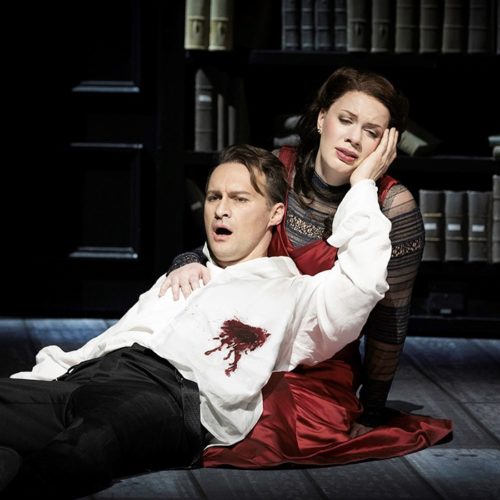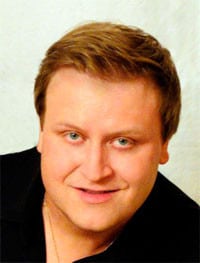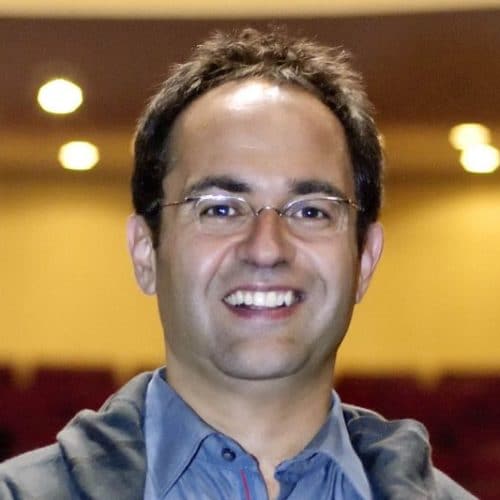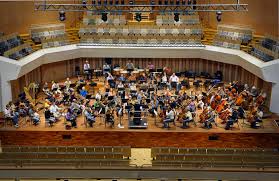The experience of flautist Hélène Boulègue will resonate with many readers. She has authorised Slipped Disc to circulate this post.
It is with regret that I have to announce I am leaving Stuttgart and the SWR Symphonieorchester at the end of this month. As many of you might have known, I was on trial this whole past year, and in the end things didn’t work out between the orchestra and me. I won’t lie, this isn’t the result I was hoping for, and finding out I am not what the orchestra was looking for did hurt quite a bit. It still does.
On the other hand, I am going back to Luxembourg, and to its wonderful and very warm orchestra, where I spent the last eight years of my life, and which I call home. I am lucky that I could keep my job open in case I didn’t pass probation, and I am very grateful to go back to the place where I have spent some of the best years of my life.
This is a weird mixture of feelings I have been living with the past few weeks. I am sad, regretful, and yet relieved that this time of not knowing is over. I am exhausted and weak, yet the anger of not being enough fuels me with the energy and the will to be already planning for the next step.
I’ll be honest: despite my past achievements and victories, this major setback has made me feel like a failure. I am past the worst of it, I think, but this awful sensation of spiraling down sometimes comes back and takes me unaware. It is a reminder. A reminder that no matter who you are and what you’ve done in the past, as an artist (or should I say as a human being?) you will always have to question yourself. There will be no respite from yourself. As soon as you think you arrived at a point you wanted to reach, there will be something to show you all the ways you still have to improve and work on yourself.
Failing hurts. Not being enough hurts. It hurts all the more because as musicians, we pour all our hearts and souls into what we are doing. Then a failure feels like a rejection of our entire being. That’s how I felt at first.
Thankfully I know better now.
Here is what I think.
Failure doesn’t define you. In fact, failing doesn’t define you any more than winning does.
Winning the Kobe Competition in 2017 didn’t define me, just as not passing trial at the SWR doesn’t define me. What you do of achievements and setbacks is what defines you. You chose what you do of victories and losses, and only you can define who and what you are.
Winning Kobe means a lot and says a lot. But it doesn’t define me, because as a person, I am so much more than just a prize. Deciding to record the complete flute works of André Jolivet and going through with it in just one and a half year, in the middle of moving, having a new job in a new country and being on trial, this defines me.
Not passing trial and still deciding to go through the end of my contract even if I knew it would be one of the hardest things I had ever done, this defines me.
Our choices define us, not results that are out of our hands. We decide what we are.
I might not be Principal at the SWR anymore at the end of next week, but I will be a better person for it in the end, because I will decide to take it as the opportunity to become a better musician.
I will forever be grateful to my colleagues of the SWR, who have been so friendly to me until the very end, and who taught me so very much! I had one tough year, but it was also a wonderful time! I won’t ever forget the warm welcome and this few months together. And above all I will remember the music I had the chance to be part of. For now, I’m moving to Luxembourg tomorrow, and then coming back to play my last week with the SWR. I will enjoy every moment of it, take the experience and music in, then our ways will part. And there will be no anger, no ill will and no bitterness. Just the sorrow of leave-taking and the smell of new beginnings.

Watch Werther from Bergen.

From a corespondent:
For the past 5-6 years Muziekegbouw Eindhoven has been struggling with a large financial deficit due to a disproportionate annual increase of the venue’s rent. The city council of Eindhoven, responsible for signing a 40-year contract some 25 years ago, has decided that Muziekgebouw should cover that lease every month while simultaneously cutting back on subsidies. Weirdly enough, the city council is the one and only shareholder of Muziekgebouw.
The council is now demanding that Muziekgebouw come up with a plan before April 1st to make ends meet. This means that the artisitic planning is under serious threat as well as a lot of jobs since various audits by several different third parties over the years have shown that the organistion is already as lean as it possibly can be.
Employees are organising a demonstration at the city council offices to day at 1600, including performances by sympathising artists, a dj and members of the Philharmonie Zuidnederland orchestra who have their home at Muziekgebouw Eindhoven.
There is a petition (also in English) that people can sign
here.
Message received:
On Monday, the Trump administration released its budget proposal for fiscal year 2020, in which it proposes shutting down the National Endowment for the Arts and the National Endowment for the Humanities, stating that the administration does not consider the activities of the agencies to be “core Federal responsibilities.”
This is the third year in a row that the administration has proposed eliminating the cultural agencies. It’s also the third year in a row that a bipartisan Congress has demonstrated its support for the agencies by increasing their budgets. The recently passed federal budget gave the agencies a $2 million increase for FY2019, bringing the funding of both to $155 million.
In addition to eliminating the NEA and NEH, the administration proposes:
Eliminating the Institute of Museum and Library Services;
Eliminating the Corporation for Public Broadcasting;
Reducing funding for cultural exchanges at the State Department’s Bureau of Educational and Cultural Affairs by almost $400 million;
Eliminating several programs at the U.S. Department of Education such as the Arts in Education program, Student Support and Academic Enrichment Grants, and 21st Century Community Learning Centers.
The Performing Arts Alliance recently served as a National Partner for Arts Advocacy Day, when more than 500 advocates visited Washington, D.C. and many of you sent e-mails urging Congress to fund the NEA at $167.5 million for FY2020.
Continue to raise your voice and tell lawmakers about the important role of the arts in your community.
PLEASE click here to make your voice heard!

The first reviews are just in.
Richard Morrison in the Times:
…Anna Netrebko is in magnificent, anguished form as Leonora.
The voice has even more power in the lower register these days, but not at the expense of her timbre, which is still voluptuous right up to some exquisite floated high pianissimos. When she delivers Verdi’s radiantly arching motto-phrase – the musical embodiment of divine grace – 2,000 spines tingle.
Jonas Kaufmann can’t match that kind of sumptuous lustre, but I liked the way he matches his characterisation of her lover Alvaro (the chap who’s careless with the pistol) to his rugged and volatile but sometimes uneven vocal delivery.
Rupert Christiansen in the Telegraph:
Anna Netrebko and Jonas Kaufmann are in magnificent voice…
Zachary Woolfe, New York Times: As good as it gets in opera.
Ms. Netrebko, in particular, gives one of the performances of her career. Singing Leonora for the first time, her voice is startlingly voluptuous and generous in the middle and lower registers. It’s down there where this pitifully persecuted character — violently separated from her lover, who in turn has aroused the eternal ire of her brother by accidentally killing their father — really lives….
In her duets with Mr. Kaufmann, his voice’s duskiness unsettles into stormy passion. His sound shadowy and haunted, with tears at its core, he is adept at playing outsiders like Don Alvaro, but occasionally he can seem muted on stage, merely grumpy. While the exciting bit of strain and hint of wear in his tone can conjure thoughts of Mario del Monaco, Mr. Kaufmann doesn’t go for del Monaco-type Italianate recklessness; sometimes he seems too obviously to be pacing himself.
But he gets Alvaro’s wounded dignity and wariness, and he feeds off other singers, whether Ms. Netrebko or the robust baritone Ludovic Tézier.

photo: ROH/Bill Cooper
The death has been announced of Sergei Balashov, lead tenor of Moscow’s Stanislavsky Opera.
No cause has been given.
Balashov sang dozens of leading roles over the past 20 years, from Donizetti to Prokofiev. He also appeared from time to time as a countertenor in baroque productions.
A memorial service was staged yesterday at the theatre.

They are playing Stephen Sondheim’s A Little Night Music at Zwickau, in eastern Germany.
All was going well until, on Monday, the lead tenor, Marc-Eric Schmidt, failed to show. Something to do with a train delay, apparently.
Up pops the music director, Leo Siberski, and sings his role on stage.

Repetiteur Mark Johnston deputised in the podium for what is not an easy score.
When the tenor finally turned up, the conductor jumped back into the pit and normal service was resumed.
Like, who needs tenors?
UPDATE: Marc-Eric Schmidt tells us:
Sadly there was an accident with casualties on the train route from Leipzig to Zwickau on said evening.
I must add that the lead tenor role was not mine to sing that evening, I was just the lead tenor of the so called “Liebeslieders” in Sondheim’s A Little Night Music.







